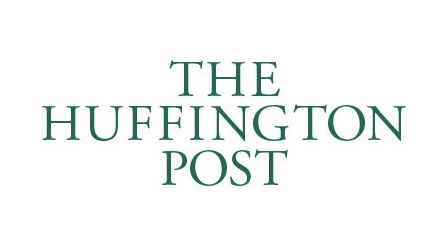Pushing to overturn Citizens United. Urging the IRS to police political activity. Proposing to replace the independent Federal Election Commission with an agency controlled by the president.
During the Obama administration, many liberals and Democrats demanded these changes. With Donald Trump in the White House, will they reconsider? Do Democrats really still want to make it more difficult to speak out against a President with whom they so vehemently disagree?
The argument against these proposals has been that strict campaign finance regulations and donor disclosure requirements are tools for government and its allies to intimidate and harass their opponents. The left may gain a new appreciation for these concerns after an especially intolerant election cycle. Traditionally conservative newspapers faced harassment and death threats for endorsing Hillary Clinton, Jewish journalists were barraged with anti-Semitic rhetoric, and Trump supporters were accused of being motivated by either racism or ignorance.
Don’t be surprised if liberals respond to Trump by joining the fight for free speech and privacy rights. In fact, the legal precedents protecting advocacy efforts against people in power were built largely by liberal activists, not conservatives. 1958’s Supreme Court decision in NAACP v. Alabama, which ruled that the state of Alabama could not force the NAACP to turn over a list of its members, is today considered the landmark ruling protecting donor privacy. 1960’s Talley v. California was also a key victory for the left, protecting the right to distribute pamphlets anonymously. Talley’s handbills called for boycotts of “manufacturers who will not offer equal employment opportunities” for minorities. Writing for the majority, Justice Hugo Black observed, “Persecuted groups and sects from time to time throughout history have been able to criticize oppressive practices and laws either anonymously or not at all.”
If Republicans continue to gain a tighter grip on power in Washington – and the states – they may grow less concerned with the threat of government hounding its political opponents. They may even seek to exploit that power themselves. That, too, would not shock any observer of politicians on the Potomac.
Just look at history: the Federal Election Campaign Act (FECA) – designed to regulate money in politics – was first deployed by a Republican President. Richard Nixon’s Justice Department brought the first ever enforcement action under FECA against the purchasers of a two-page ad in The New York Times calling for Nixon’s impeachment over the bombing of Cambodia. The ACLU and the Times also faced prosecution.
Debates about money in politics and campaign finance reform are too often framed as ideological battles between left and right. History teaches us that the real fight is between those with power and those without.
Notably, some liberals have never been on board with the anti-speech rhetoric and calls for regulation that permeated the left during the Obama administration. The American Civil Liberties Union endorsed the Citizens United decision. Along with many other liberal groups, such as the Alliance for Justice, it also harshly criticized proposed IRS rules restricting political speech by nonprofits. But in an environment where liberals largely trusted the Obama administration and were deeply skeptical of conservative groups, those voices did not gain broad traction.
When conservatives cried censorship over what became known as the IRS targeting scandal, many liberals were willing to believe it was all just a mistake. Those who sat through the seemingly endless investigations and court cases eventually agreed that conservative groups had been denied equal treatment.
What was left was a fight between the parties. Republicans took a pro-privacy stance, fighting to stop the IRS from collecting information on donors, which might be used for legal or extra-legal harassment, and to keep the IRS out of politics. Democrats were eager to peer in at the funders, fighting to tighten and expand the rules to cover even more groups, including groups that do not support candidates, and using the IRS to police campaign speech. As power changes hands in Washington, both sides need to ask whether these positions were adopted out of principle or partisanship.
Under the Obama administration, many Democrats were confident that regulating politics would serve their interests and promote fairness at the same time. Already suspicious that conservative groups played fast and loose with the rules, they imagined that the brunt of new rules would fall on groups like Americans for Prosperity or the National Rifle Association. They also had faith that public disclosure of support for advocacy groups would allow allies to expose and shame donors whose pocketbooks stood in the way of their vision of the common good.
After Election Day, the landscape looks vastly different. Allegations of racism, misogyny, and xenophobia failed to stop Trump’s rise, and failed to intimidate his supporters. Now, the laws that invade privacy to root out “dark money” could be used to make government lists of supporters of increased immigration, LGBT rights, abortion rights or criminal justice reform. And instead of going after groups like AFP or the NRA, liberals may worry about Trump targeting groups like Planned Parenthood or the Sierra Club.
As Republicans ascend to the White House, here’s hoping liberals return to their roots. If they were to join with conservatives, it’s possible they could make free speech great again.
This post originally ran in The Huffing Post on January 31st 2017.













